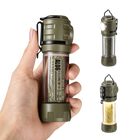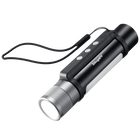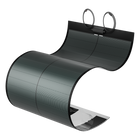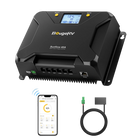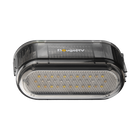Do Solar Panels Increase Home Value?

As a homeowner, you might have been concerned about two issues: rising electricity costs and environmental degradation.
As the electricity demand grows, fuel costs go up; the electricity price goes up. This trend will continue. Moreover, most electricity is generated by the combustion of fossil fuels such as coal, oil, and natural gas, which pollutes our environment as these emit greenhouse gases. Severe storms, flooding, dry seasons, and hotter climates are now the consequences of global warming and climate change for using dirty energy.
The good news is that solar energy can now solve both issues at once. Solar energy is cheap and clean. Governments across the world are giving incentives and tax rebates to promote more and more solar energy.
Homeowners are also adopting solar systems. According to the National Renewable Energy Laboratory, the number of U.S. homes with installed solar panels increased by 32% annually, and approximately 2.7 million homes had installed solar systems by the end of 2020.
- Types of solar panels and their efficiency
- Temperature effect on solar panels
- Cost of the solar system
- How much savings may one expect from a solar system?
- Solar panels increase the property value
- FAQ
- The bottom line

Types of solar panels and their efficiency
Over the decades, numerous solar panels have been tried and tested. But the dominant technology is based on silicon solar cells. Silicon cells-based panels are of two types – 1) mono-crystalline solar panels, which are the older technology and highly efficient – around 21-22% efficient, and 2) poly-crystalline solar panels are slightly less efficient – 18-19% now. There is another variety called thin film solar panels. They are either based on CIGS (Cadmium Indium Gallium Selenide) technology or are 18-19% efficient.
The more the panel efficiency, the less roof space you need to produce the same energy level. But efficient modules are more expensive.
Temperature effect on solar panels
The outside temperature has an impact on the performance of the solar panels. When the temperature rises above 77 degrees Fahrenheit, the solar panels begin to produce less electricity. If the outside temperature is 100 degrees Fahrenheit in summer, the solar panel cells will be hotter than 177 degrees Fahrenheit. At that temperature, the solar panel may produce 10 to 15% less electricity for some solar panels. And at least 3-4 months of the year will be hot summer, especially in southern American states.
Different types of panels behave differently to the temperature rise. Mono-crystalline and the CIGS panels are better performers in hotter seasons.
Therefore, in selecting the best suitable solar panels, there is always a trade-off between factors like efficiency, price, and overall performance of the panels. BougeRV, with its deep experience, can help you select the right kind of panels for you based on your location, space, and budget.
Cost of the solar system
The cost of the solar system varies widely depending on the type of solar system, types of solar panels technology, and capacity of the system. The system's cost also depends on federal and local government tax rebates and incentives.
For example, off-grid solar systems with battery backup are nearly twice as expensive as grid-tide or grid-connected systems. Mono-crystalline solar panels are more expensive than poly-crystalline solar panels. CIGS panels will be the costliest, but it has other advantages.
The basic cost of the 6kW solar system in the U.S. the ballpark figure varies from $13101 in Kentucky to $19560 in Hawaii. This data is as per U.S. organization Consumer Affairs. That means the USD per watt varies from $2.34 to $2.67.
As per the office of Energy Efficiency and Renewable Energy (EERE) under the Department of Energy (DRE), the Investment Tax Credit (ITC) by the federal government for solar in 2020-21 was 26%, but that has been increased to 30% in August 2022 by Congress, and this will be applicable up to 2032.
Numerous local government solar incentive programs are available to help offset the cost, and most people only need to find the right one. Some states also provide tax credits similar to the federal credit. Furthermore, some utilities or cities provide upfront rebates to purchase solar systems.
Certain states require utilities to obtain a portion of their electrical power from solar, specifically rooftop solar. Solar Renewable Energy Certificates (SRECs) are issued to solar system owners under this legislation. 1000 kWh of solar energy equals one SER Certificate. Utilities purchase these certificates, legally obligated to source power from solar generation.
It may seem overwhelming to apply for all the credits and incentives you are eligible for, but if you contact BougeRV, we can guide you through the different programs, which will significantly lower the upfront cost.
How much savings may one expect from a solar system?
The best part is that the solar system starts saving for you as soon as it starts. How much you will save at the end of the month or year will depend on several factors like:
- Location: Solar systems depend on how much solar radiation it has, and so the electricity will be generated in a month or year,
- Tariff and regulations:If the Tariff is high, you save more. It also depends on regulations like net metering, Performance Based Incentives (PIB), and SERC, which the city or the utility follows.
- Design and engineering: Energy generation from the solar system also depends on the Design and engineering of the system. Power generation from two similar systems in your locality may differ based on how well the system is designed and installed. For example, power generation depends on the solar panel's tilt angle and how it faces the sun. Other factors include the kind of inverter (micro, string, central inverters) chosen.
As you might be aware, the solar system's life is for 25 years, and the solar panels are warranted for 25 years. Typically, 5 to 8 years is required to recover your investment in the solar system. Therefore, one can get free and clean solar electricity for the next 17 to 20 years. It's it great?
Solar panels increase the property value
As per the Office of Energy Efficiency and Renewable Energy (EERE) under the Department of Energy, solar panels installed on a home are regarded as a home improvement and increase the home's value. Buyers can see the value of reduced energy costs of the home with solar panels. Also, solar panels reduce the carbon footprint.
As per EERE, a home with an average size solar system attacks a premium of $15000 in the U.S. market. Moreover, homes with solar panels sell faster than homes without solar panels.
How it increases the home value? There are several reasons:
- Reduction of electricity bills:If the house is in a sunny location with south-facing roofs, the solar array can generate enough electricity to offset the electric bills completely. This means you could have zero electricity costs for at least a few months of the year. That's a significant saving. Other incentives, such as SERCs and PIBs, may be available depending on the state, city, or utilities. As the cost of grid electricity continues to rise, solar panels, on the other hand, can fix future electricity costs.
Potential buyers understand these benefits in dollar-to-dollar terms and are ready to pay the premium.
- Property tax exemption: According to the Solar Energy Industries Association, 36 states offer property tax exemptions to homeowners who install residential solar systems as of 2022.
When solar panels are installed on a property's roof, the property's value rises significantly, typically by 4.1%. This raises the property tax. However, in states with renewable energy property tax exemptions, homeowners are not required to pay any additional taxes on the increase in property value.
- Environmentally friendly: Any environmentally conscious buyer will look for an environmentally friendly house. And this tribe is increasing since people are becoming increasingly conscious of the danger of global warming and climate change.
A home with a new solar system attracts them, ready to pay the premium. They want to live in a cleaner environment, and reducing their carbon footprint is a brand statement of their personality.
- Energy Star Rating: In some markets and some real estate companies provide energy star ratings to the properties depending on how much the property is energy efficient. Obviously, the solar panels on home increase the energy star ratings.
FAQ
What is net metering:
Net metering is a metering and billing arrangement designed to compensate homeowners with solar systems connected to the utility grid for any energy generation exported to the grid.
For example, a 5kW solar system on a home is generating 600 kWh of energy in a month in the daytime. Out of this 600 kWh of solar energy, the property is consumed 200 units for the month in the daytime. The rest 400 units are exported to the grid. The property imported another 700 units from the utility grid in the evening. Therefore, in the net metering arrangement, the homeowner only pays 700-400 = 300 kWh for that month.
The amount of compensation varies by location and is determined by state and local policies. Again, the Tariff at which utilities may compensate net metered customers for excess generation could be the full retail Tariff or slightly less.
How much energy can solar panels generate?
Solar generation varies depending on the system's location, tilt, orientation, and capacity. To estimate how much energy a system may generate in your location, you can check the Global Solar Atlas. You put your location on the site and choose Small Residential Systems, put your system size (say 2kW, 4kW, or 6kW), and you can immediately get a yearly estimated energy generation from the system. This site is free and is a World Bank initiative.
Is it the right time to buy a solar system?
This is a critical question for every homeowner who wants to install a solar system. In fact, anytime is the best time to invest in solar systems and nobody will regret this investment. Since it has the immediate short-term benefit as it starts saving in monthly electricity costs and long-term benefit of free electricity for the next 18-20 years, increasing the property value and protecting the environment.
There are a few factors to consider for the timing of the investment and why today is the best time. First, the economy is in a recession, and the experts believe this will last for the next two years. The cost of living has risen recently. Every penny counts. Saving money on energy bills is a huge benefit right now. Second, incentives and tax rebates on solar systems are decreasing yearly as system costs have decreased. Incentives may become scarce shortly.
The bottom line
Determining whether solar systems improve home value based on the market cost, solar energy generation, tax rebates, and incentives may seem daunting. But remember that such a system is a long-term investment and gives you a considerable monetary benefit in the long run. It will improve the home value, and there is no doubt about it.
Please like and share if you find this article interesting and answer some of your queries. For any assistance and clarification, please get in touch with us at BougeRV. We are best placed with our long experience to assist you in your journey toward clean green solar systems.







